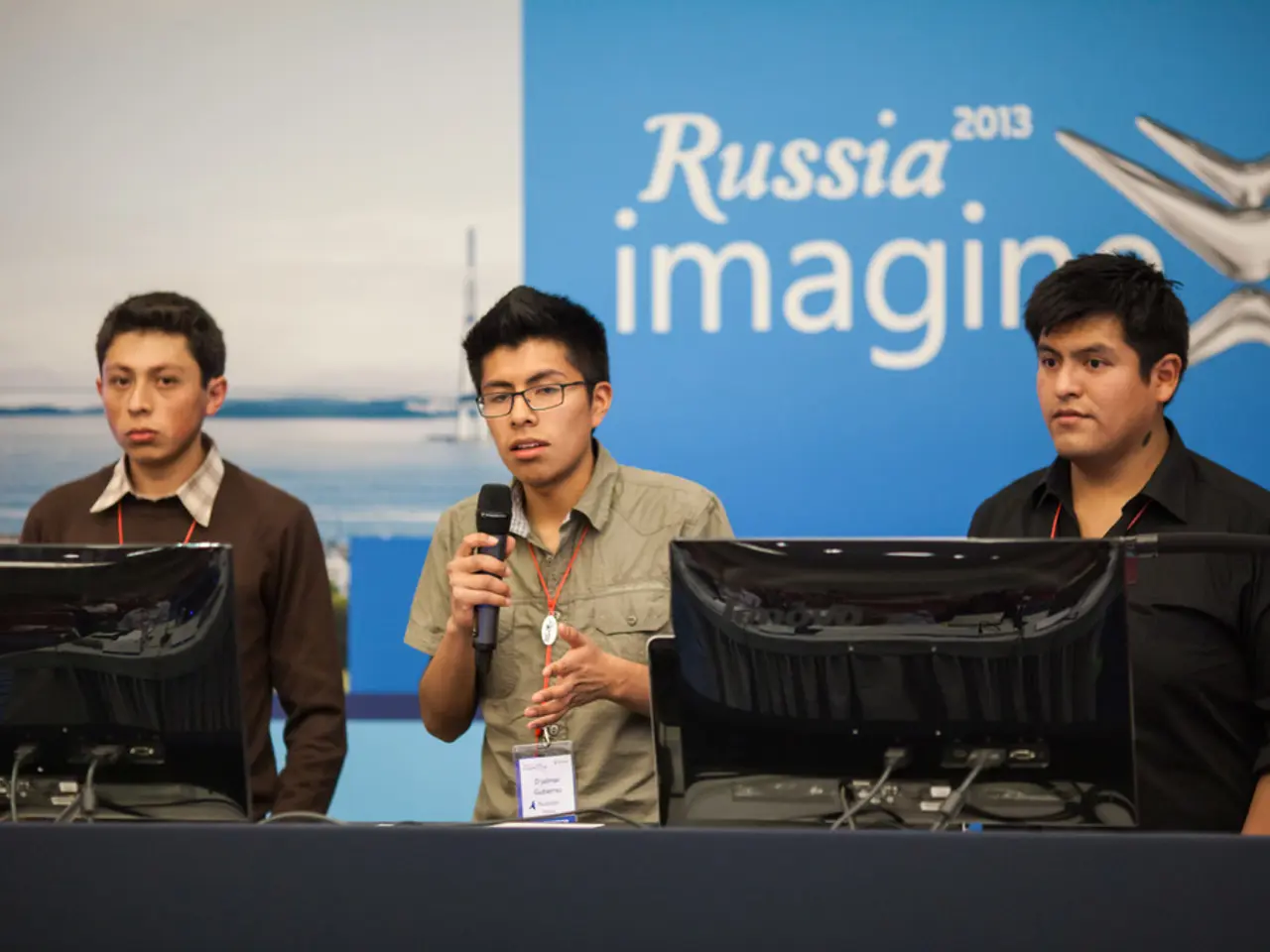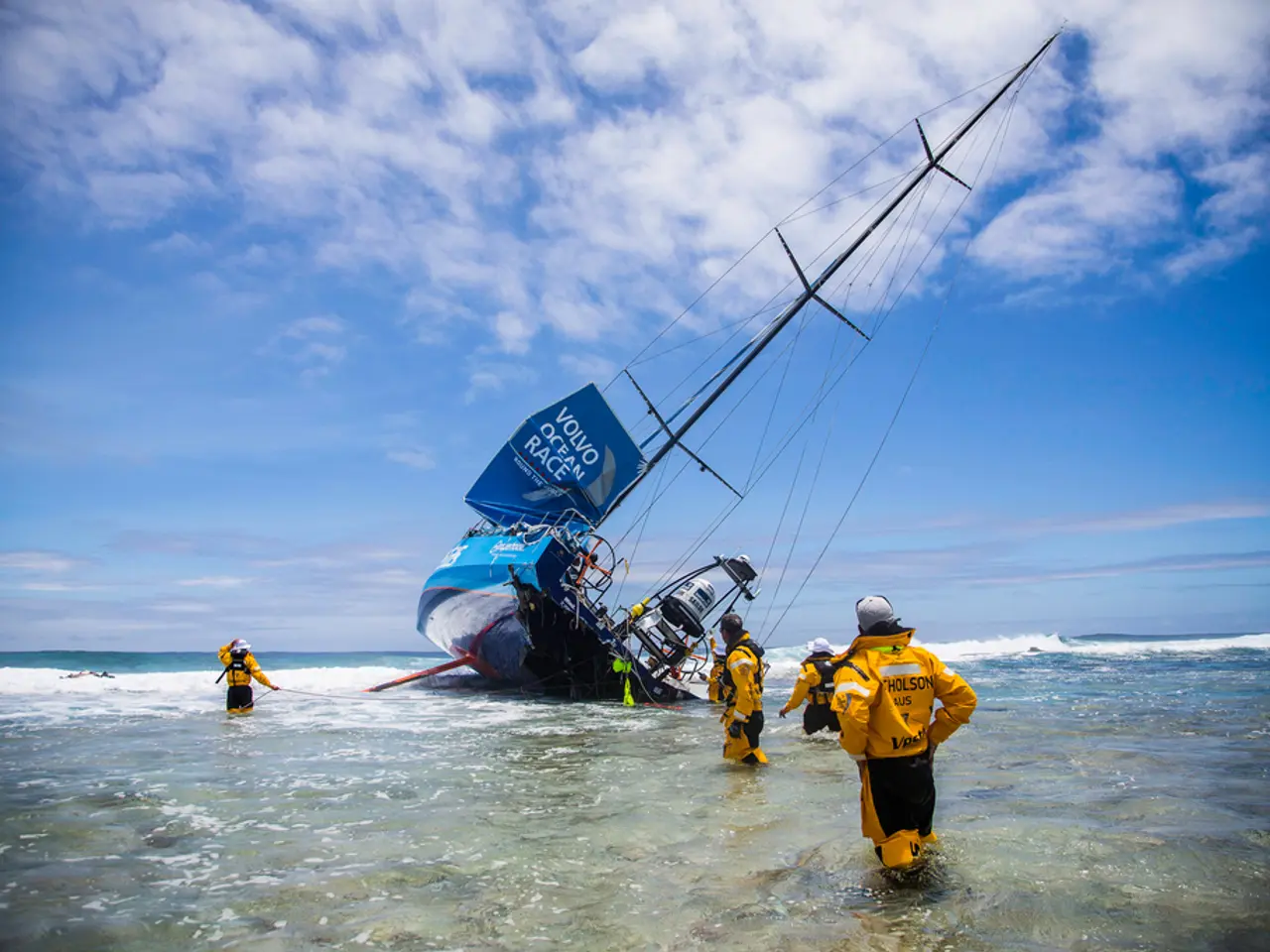Trump recognizes Putin as the one pulling his strings, according to Mölling. - Trump recognizes Putin's manipulation, according to Mölling
In a recent episode of the stern podcast "The Situation - International", security expert Christian Moëlling discussed the evolving dynamics of the Russia-Ukraine conflict and the potential impact on global geopolitics.
Moëlling noted that former U.S. President Donald Trump has appeared to shift from an earlier engagement strategy towards a more confrontational stance with Russia. This change is evident in Trump's recent ultimatums tied to the Ukraine conflict and his conditional support for the European Union (EU) in providing funding for Ukraine's defence, as demonstrated by his announcement of delivering Patriot missile systems to Ukraine, financed by the EU.
Regarding the Ukraine conflict, Moëlling expressed that Trump's 50-day ultimatum to Russia, originally set for a peaceful resolution, has been shortened to "ten to twelve" days. However, Moëlling remains uncertain whether the U.S. is prepared for a potential double conflict with Russia and China.
The broader geopolitical implications of this shift are noteworthy. Moëlling and other experts acknowledge that China’s supportive role towards Russia in the Ukraine conflict complicates Western security. China’s strategic backing of Russia is crucial to the Kremlin’s war effort and is partly driven by a desire to prevent the U.S. from focusing solely on China.
The closer Sino-Russian relationship, often referred to as a “friendship with no limits”, has significant consequences for both European and transatlantic security, especially as tensions with China escalate simultaneously. This emerging alignment, fuelled by shared opposition to U.S. policies, heightens the risk of broader geopolitical conflict involving China.
In a separate development, the French state-owned defense company "Naval Group" has allegedly been subject to a cyberattack. Christian Moëlling described this incident as "severe reputational damage" for France. The data leak, which became known a few days after French President Emmanuel Macron announced that France would recognise Palestine as a state before the United Nations in September, could make France more vulnerable in a potential deployment and make it easier to detect the submarines, according to Moëlling. It is still unclear who is behind the alleged attack and the publication of the data in the darknet.
Moëlling expressed disappointment with Russian President Putin in the latest podcast episode and believes that the Russians may not have the impression that something is happening now in terms of Trump's approach. However, he noted that Trump is hesitating, possibly for good reason.
In conclusion, Moëlling's analysis suggests that Trump's shift from engagement to a harder line with Russia, coupled with the emerging China-Russia alignment, could have significant implications for global geopolitics. The full extent of these implications and the outcome of Trump's approach remain uncertain.
[1] Reference for further reading on the Ukraine conflict and Trump's policy shift: [Article Link] [2] Reference for further reading on the Sino-Russian relationship and its impact on Western security: [Article Link]
The European Union is also calling on the EU to take a more active role in the fight against terrorism, as policies and legislation related to politics and general news suggest a heightened need for cooperation in the face of increasing war-and-conflicts, particularly in the wake of the evolving dynamics between Russia and Ukraine. The data leak from the French state-owned defense company "Naval Group" serves as a stark reminder of the potential vulnerabilities that such conflicts can expose.






